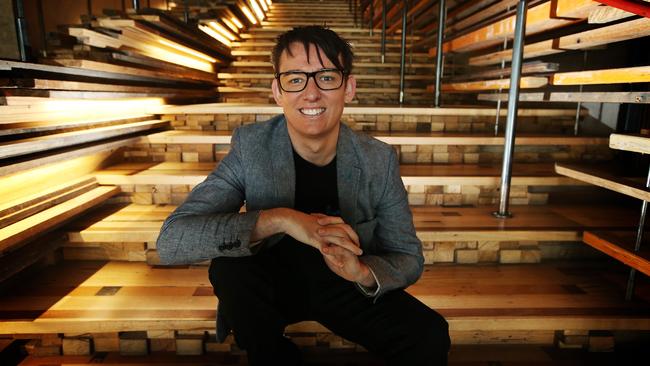Disability employment: able and willing to work
Gay and with a cerebral palsy, Wayne Herbert jokes that he ‘ticks every box’.

As a senior leader in the disability employment sector, it’s no surprise Wayne Herbert has an impressive CV to match.
Along with his work in the public service, Herbert is a published author and an avid public speaker who will travel overseas in June to deliver a speech at the Canadian Association for Supported Employment.
He also has cerebral palsy.
As a gay man with a disability, Herbert jokes he “ticks every box” when it comes to disability and diversity questions on employment questionnaires.
But, Herbert, who hails from Grafton, NSW, is on a mission to “reshape the conversation” when it comes to the way Australians conceptualise disability.
“Disability is just as diverse as any other characteristic or attribute I have,” Herbert says. “It doesn’t define me.”
Herbert, who delivered the popular TEDX talk Anecdotes of a Disabled Gay in September last year, is trying to transform societal attitudes and change the “ever-present weight of low expectation”, one speech at a time.
While Herbert says employment services for disabled Australians have “come leaps and bounds” in his lifetime, he says “we need to ask what more can be done to improve it”.
“One of the questions I pose quite often is, here I am, a university-educated, published author, TED speaker and an employment services leader … if you wanted to hire me, could you?”
Herbert say many human resources professionals have answered “no”.
Frustratingly, he says, many companies around Australia are held up by “unnecessary red tape” that “sometimes gets in the way” for those wanting to hire candidates who happen to be disabled.
A key element to these non-inclusive policies are “myths surrounding the employment of disabled Australians”, which have “created barriers and anxieties for people”.
Although Herbert credits the ACT’s disability employment sector with “doing a good job” helping disabled Australians into the workforce, he says “employers need to be aware that people with disabilities make fantastic employees” and are “a clear worthy investment in the diversity of your organisation. They take less sick leave, stay in their positions longer, are less likely to have workplace accidents.”
Herbert says it also should be a no-brainer that Australians with disabilities deserve to expect well-paid, quality employment and “receive the same opportunities as their peers. It’s not an optional extra, it should be an expectation.”
Another area for improvement is how organisations ask potential employees to disclose their disability.
Herbert says Australians “find it challenging” when they are asked to “just tick a box”.
“There is still some level of stigma around the disclosure of one’s disability,” he says. “I need to understand what they do with that information to then improve my experience.”
Most important, Herbert says, he wants Australians to understand “I’m just like everyone else. It just seems to be that I have what society considers to be a disability.
“At the end of the day we have more similarities than differences. But sometimes there’s a tendency to focus on difference rather than the qualities and traits we have in common.”
Disability Services Australia chief executive Rick Kane says that while there’s no real international data when it comes to employment rates among disabled people, Australia is “still trailing” behind other OECD countries when it comes to workforce participation rates and medium gross yearly income.
Citing a 2015 report by the Australian Institute of Health and Welfare that revealed, of 2.1 million working-age Australians with a disability, only 53 per cent were employed, Kane says: “We are still fighting a very, very big fight over some very basic stuff, such as participation rates and access to work.”

